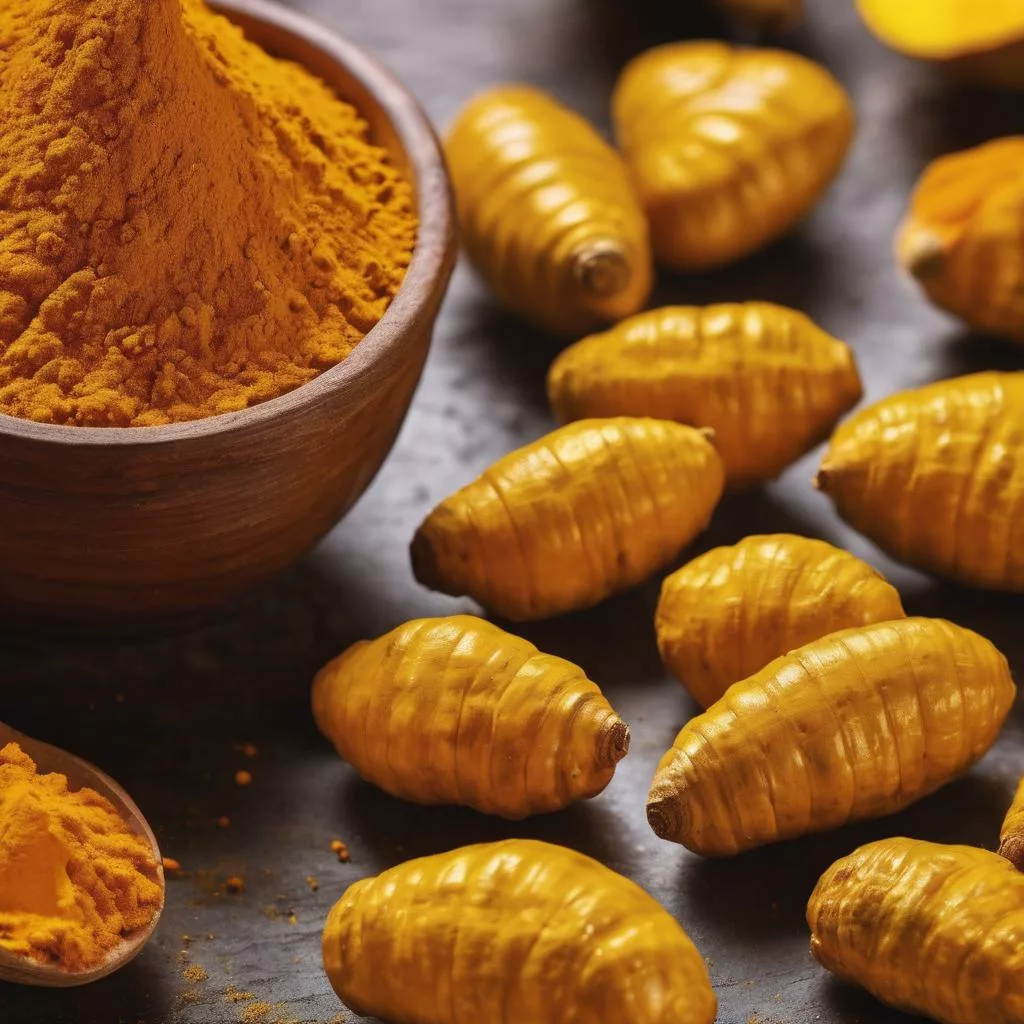
Turmeric is a spice that comes from a yellow-orange root. For hundreds of years, it has been used to treat a wide range of illnesses. It is commonly used in Asian communities for cooking. Studies on the effectiveness of turmeric root have shown curcumin, which is found in turmeric, to be helpful as a medicine. The use of turmeric with black pepper extract is even more beneficial.
Today, turmeric is recognized as a superfood. In fact, some believe that the gold that the three biblical wise men brought from the east brought turmeric to baby Jesus as a gift when he was born. Perhaps the notion of gold comes from its color.
Turmeric, scientifically known as Curcuma Longa, has been used in India and China as a food ingredient, a natural medicine, and in treating some skin problems. For it to be referred to as a “superfood,” it means that turmeric has many health benefits. Let us get down to why turmeric is an important root plant before discussing how its efficacy is improved with black pepper extract.
12 Benefits of using Turmeric
#1. Turmeric Helps Fight High Cholesterol
High cholesterol is bad for your health. Some studies have shown that using turmeric in food can lower LDL cholesterol (bad cholesterol). According to a recent publication by Medical News Today, “a 2021 review by Trusted Source looked at studies into the effects of curcumin on cholesterol.” It was found that curcumin significantly reduced Type 1 lipids in more than two-thirds of the studies. Studies that used a bioavailable formulation of curcumin reported a better impact on lowering cholesterol.
#2. Turmeric Increases Antioxidants on Our Bodies
Curcumin, which is found in turmeric, is a powerful antioxidant. Antioxidants are molecules in our bodies that fight free radicals. Left unchecked, free radicals can cause illnesses such as cancer, diabetes, and heart disease. Antioxidants are found in some foods such as vegetables, fruits, and other plants, which supplement those in our bodies. Vitamins C and E are effective antioxidants. Curcumin neutralizes these free radicals.
#3. Turmeric Can Help People with Depression
Depression is a major problem in today’s world. Studies have shown that neuron loss in the hippocampus and low levels of neurotrophic factors in the brain leads to depression. Scientists have found that curcumin reduces depression symptoms when used alone or in combination with saffron.
# 4. Turmeric to Control Diabetes
Inflammation has been linked to the development of several diseases, including heart disease and diabetes. Severe inflammation also impacts diabetes, increases insulin resistance, and contributes to obesity. Blood sugar levels will rise as insulin resistance increases, leading to type 2 diabetes if it remains untreated. Curcumin’s anti-inflammatory and antioxidant properties are believed to be able to prevent the development of diabetes.

#5. Turmeric May Help Relieve Arthritis
Arthritis is a common joint disorder that affects fingers, joints, and knees. In a recent study, about 10 percent of men and 13 percent of people aged above 60 years display symptoms of arthritis. In 2019, another study comparing curcumin and diclofenac for treating knee osteoarthritis was published in a medical journal. The study looked at how safe and effective each one was. The study concluded that “curcumin has similar efficacy to diclofenac, but demonstrated better tolerance among patients with knee osteoarthritis.” Curcumin can be an alternative treatment option for patients with knee osteoarthritis who are intolerant to the side effects of non-steroidal anti-inflammatory drugs.
# 6. Turmeric Can Prevent Some Types of Cancers
Mayo Clinic, a nonprofit organization committed to clinical practice, education, and research, indicated that laboratory and animal research suggests that curcumin may prevent cancer, slow the spread of cancer, make chemotherapy more effective, and protect healthy cells from damage by radiation therapy.
Other researchers think that curcumin could slow the growth of new blood cells in existing tumors and possibly help get rid of cancerous cells. Research on whether turmeric can prevent cancer is still going on.
#7. Use of Turmeric in the Prevention and Treatment of Alzheimer’s Disease
Alzheimer’s disease is a neurodegenerative disorder that leads to confusion and memory loss. Research on its causes is still ongoing. It is believed to develop after a protein called amyloid-beta begins to clump in the brain, disrupting cell function through the plaques that form. Animal studies have shown that turmeric reduces inflammation in the brain and slows the growth of amyloid plaques.
#8. Turmeric For Skin Condition
Studies have shown the use of turmeric in patients with acne, androgenetic alopecia, pruritus, and vitiligo is beneficial. This spice has been used in India and China to treat skin conditions for centuries. Some people may have allergic reactions, and one may need to consult a dermatologist before applying it to their skin.
#9. Turmeric For Weight Control
According to Mohsen Meydani, Ph.D., and Director of the Vascular Biology Laboratory at the USDA HNRCA, weight gain is the result of the growth and expansion of fat tissue, which cannot happen unless new blood vessels form, a process known as angiogenesis. He is said to have said that, based on their data, curcumin seems to stop angiogenesis in the fat tissue of mice that eat a high-fat diet. This suggests that turmeric can be used in weight management.
#10. Turmeric For Viral Infections
Curcumin can stop the spreadable gastroenteritis virus from infecting cells, according to a study published in July 2020 in the Journal of General Virology. Other studies have also concluded that curcumin might be helpful in fighting other viruses that affect humans. They include HIV, the Zika virus, Chikungunya, the Dengue virus, the Influenza A virus, and more.
#11. Headaches and Migraines
Migraines are caused by vasoconstriction (constriction of blood vessels), and turmeric helps improve overall blood circulation and functions as a blood thinner, according to Dr. Bhatia. This makes it a possible migraine treatment. More research is still required.
#12. Turmeric in Treatment of Irritable Bowel Syndrome
A study titled “A Meta-Analysis of the Clinical Use of Curcumin for Irritable Bowel Syndrome (IBS)” published in the Journal of Medical Clinic in September 2018, concludes that turmeric has a positive effect in the treatment of IBS.
The report concludes
Current evidence suggests that curcumin has a positive albeit not statistically significant effect (compared to placebo) on IBS symptoms, alleviating pain and improving quality-of-life scores in patients with at least moderate symptom severity. With its unique anti-oxidant and anti-inflammatory activities and ability to modulate gut microbiota, it is a potentially useful addition to our armamentarium of agents for managing IBS
Using Turmeric with Black Pepper Extract
Turmeric has an active compound known as curcumin that has many health benefits, such as being an anti-inflammation, antibacterial, and antioxidant. The downside of turmeric is that our bodies are not able to absorb the maximum amount of curcumin that it requires. This is why black pepper is used to help increase absorption.
Black pepper contains antioxidants and anti-inflammatory properties, like turmeric. Piperine, the active ingredient of black pepper, helps your body absorb more curcumin. There are numerous recipes available for combining these two foods to produce stronger results. The right ratio can be hard to figure out, so you might want to look into supplements that are made scientifically. You can also choose Turmeric Juice Option as well.
Please note that you should not use turmeric as a replacement for your prescription drugs. Your first call should be to your doctor, and in some cases, you may need their advice before using turmeric or any other natural medicine.


